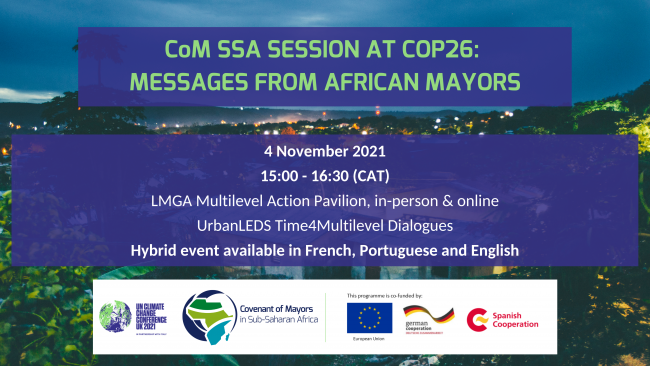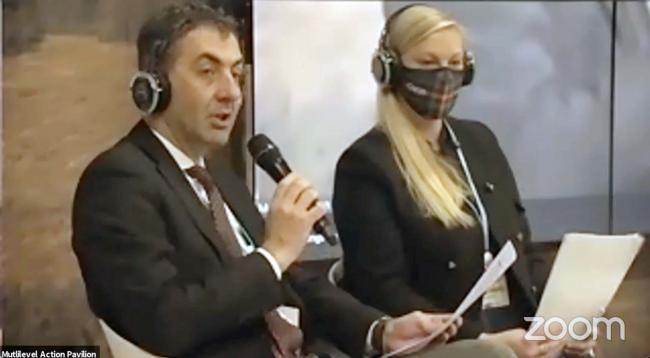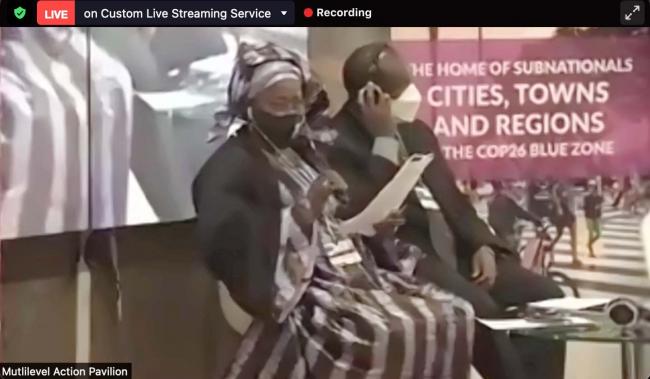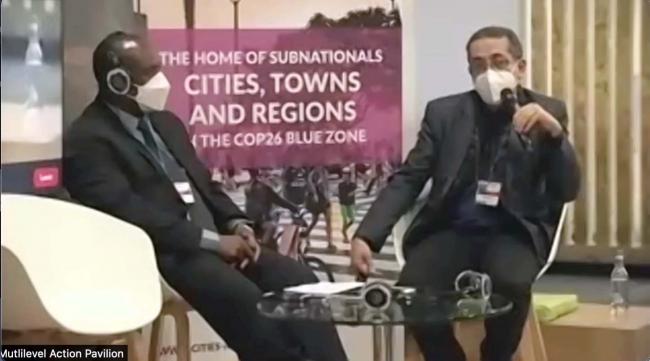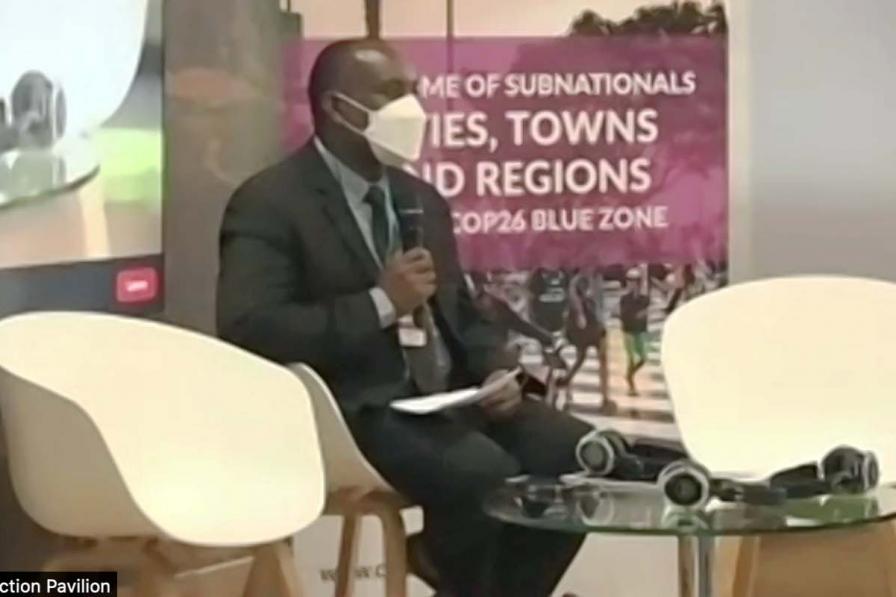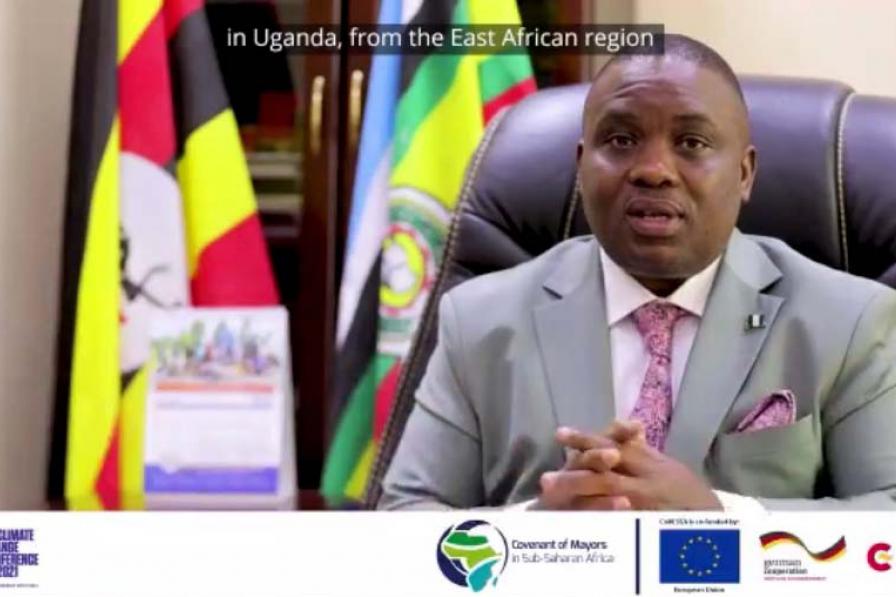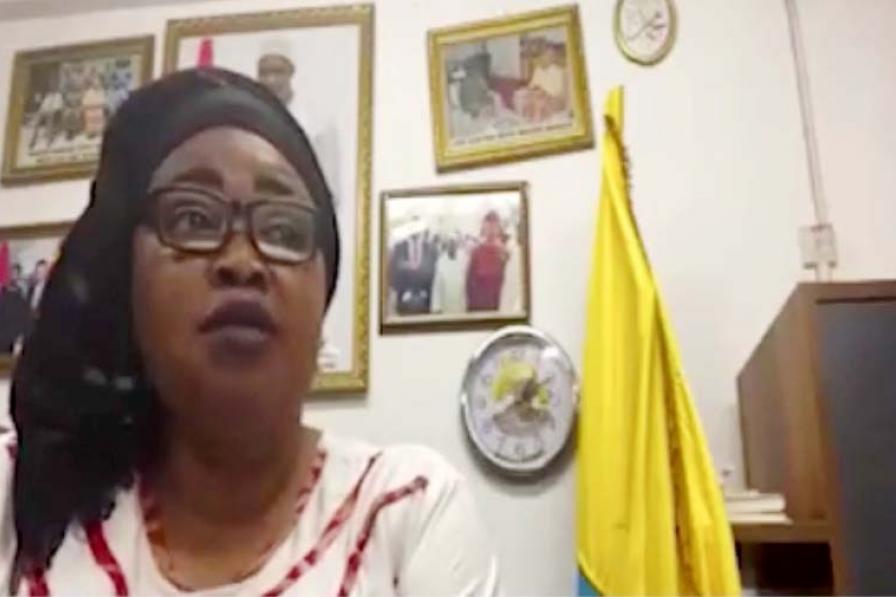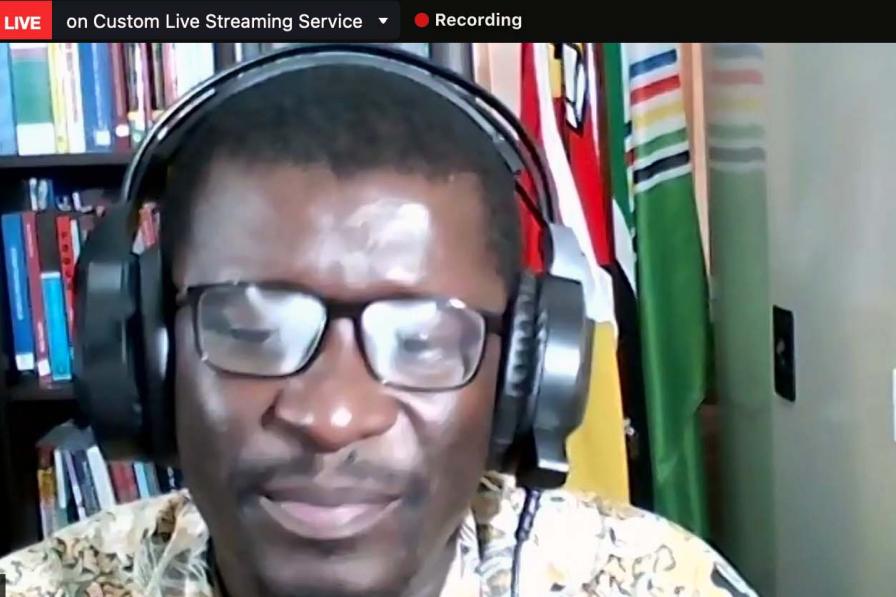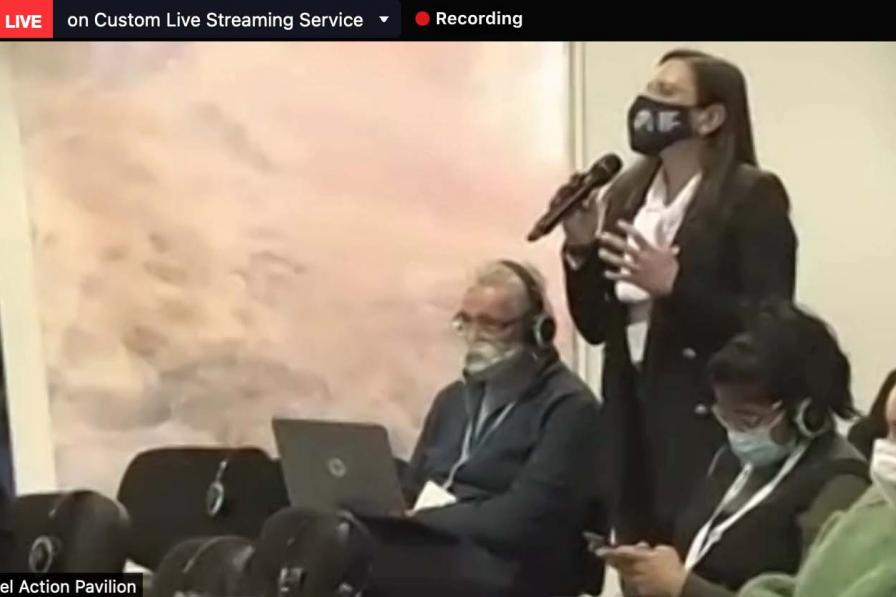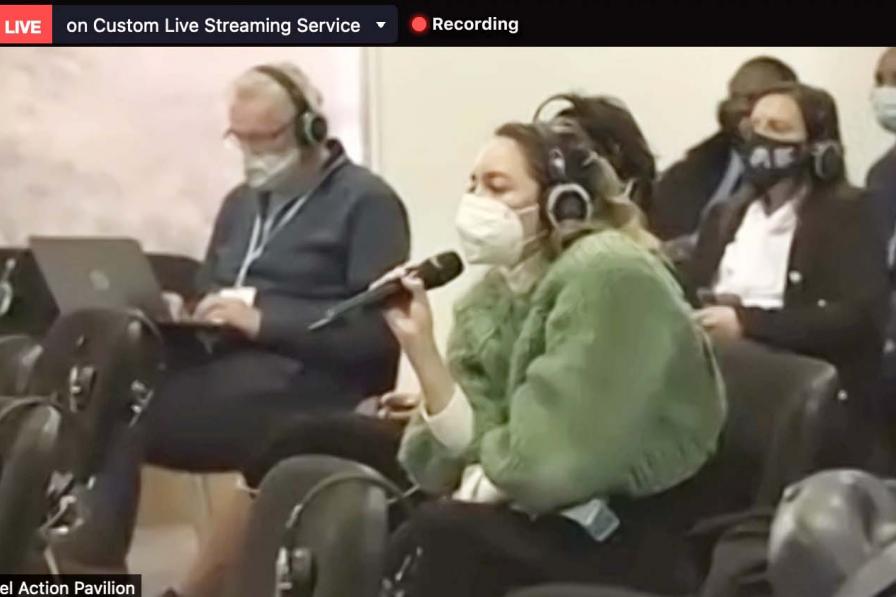Time4MultilevelAction Dialogue: Strengthening Multilevel and Inclusive Governance for Climate Action: Messages from African Mayors for COP26
Despite its limited contribution to climate change, the African region is doing its part to address the problem, while at the same time, it trying to adapt to and build resilience against climate change and its effects. Cities play a critical role in these efforts and the Covenant of Mayors in Sub-Saharan Africa (CoM SSA) works to support local governments in Sub-Saharan Africa to move from planning to implementation. These efforts were the focus of the event “Strengthening Multilevel and Inclusive Governance for Climate Action: Messages from African Mayors for COP26,” which provided African Mayors the opportunity to showcase actions they are taking on the ground. The event, which took place at the Multilevel Action Pavilion, also announced the publication of the evidence-based report “Data Talks: What data do local governments really need to plan effectively for climate change?”
Opening Remarks
The event was moderated by Kirsty Griffin, ICLEI Africa. Stefano Signore, Head of Unit, European Commission, underlined the importance of climate change adaptation and the unique needs of African cities. He explained that 268 cities have made political commitments under CoM SSA to implement climate and energy actions, and highlighted that many of these cities are taking action by completing a Sustainable Energy Access and Climate Action Plan (SEACAP).
Keynote Remarks
Camara Fatimata Traore, First Deputy Mayor of Bamako, Mali, reported that the city is now entering the definition phase of its SEACAP. She explained that with CoM SSA’s support, it has identified pathways and efforts to enable Bamako to achieve its 2030 climate change objectives. Traore noted, for instance, that the city’s greenhouse gas (GHG) inventory shows transportation is responsible for 56% of Bamako’s GHG emissions. This, she said, has led the city to identify the need to implement low-carbon transportation actions.
Erias Lukwago, Lord Mayor of Kampala, Uganda, described the Kampala Climate Change Action Plan of 2016, which he said is now at the implementation stage, with several bankable projects awaiting support from partners. He explained that the city has installed an air quality monitoring system and developed emissions inventories to collect data to support project development. Lukwago said the main goals of all the projects are adaptation and resilience building, and emphasized the need for COP 26 to make progress on the issue of climate finance.
Rohey Malick Lowe, Mayor of Banjul, The Gambia, stressed that the future of Africa lies in its cities, which can be a breeding ground for innovation and can champion the transition to a sustainable, equitable, and energy-secure future for all. She emphasized that African Mayors can use their executive powers to implement policies to reduce GHG emissions and make cities more resilient, and underlined that African cities can greatly benefit from CoM SSA in this regard.
Salmon Orimba, Kisumu County, Kenya, reported that with the support of CoM SSA, Kisumu has: prepared its SEACAP under which it was able to obtain baseline data on carbon emissions and community energy access; set clear strategies and policies for climate change mitigation; and built the capacity of community members, starting from the Ward level. Orimba highlighted actions taken by Kisumu County to reduce GHG emissions and increase energy access, including educating the community on using green energy sources rather than charcoal and wood.
Kamal Djemouai, African Group of Negotiators, emphasized that the Group is negotiating in response to cities’ needs, including for climate finance. He identified initiatives that support local communities and municipalities, but noted there are not enough of them. Djemouai, therefore, highlighted the need to ensure coordination between cities’ needs and the outcome of negotiations on issues such as mitigation, adaptation, finance, and capacity building.
Manuel de Araújo, Mayor of Quelimane, Mozambique, noted a lack of trained people who can translate the challenges of the Global South to the language of financial institutions, and that financial institutions also lack the capacity to understand the challenges of local communities. He highlighted CoM SSA’s efforts in overcoming these capacity challenges. He also explained that CoM SSA has been instrumental in raising awareness of local governments, and giving African Mayors a voice at the regional and global levels.
Discussion
Responding to an audience question about expectations from COP 26, Orimba called for action-oriented negotiations that are implementable and geared towards decisively meeting climate change commitments. On barriers to increasing finance in Africa, Signore identified: risk aversion of many financial institutions; lack of bankable projects, noting the need to build countries’ capacity to develop projects; and lack of human skills and capital.
On youth engagement, De Araújo described a mangrove restoration project in Quelimane, which educates youth on the importance of mangroves. Recognizing that many young people rely on mangroves for energy and building, he said the project also works to develop new ways to transform waste to biogas to replace the coal that comes from the mangroves and has partnered with UN-Habitat to develop models of resilient houses, built, not with mangroves, but with locally-adapted materials.
Closing
Closing the event, Griffin announced the publication of Data Talks: What data do local governments really need to plan effectively for climate change?, produced by ICLEI Africa under the framework of CoM SSA. She said the report can be used by local governments and their partners in their climate change planning and implementation.
Contact
Marina Reyskens Lutz | marina.reyskenslutz@iclei.org
More Information
https://comssa.org/en/news/join-us-messages-from-african-mayors-for-cop26
To receive free coverage of global environmental events delivered to your inbox, subscribe to the ENB Update newsletter.

